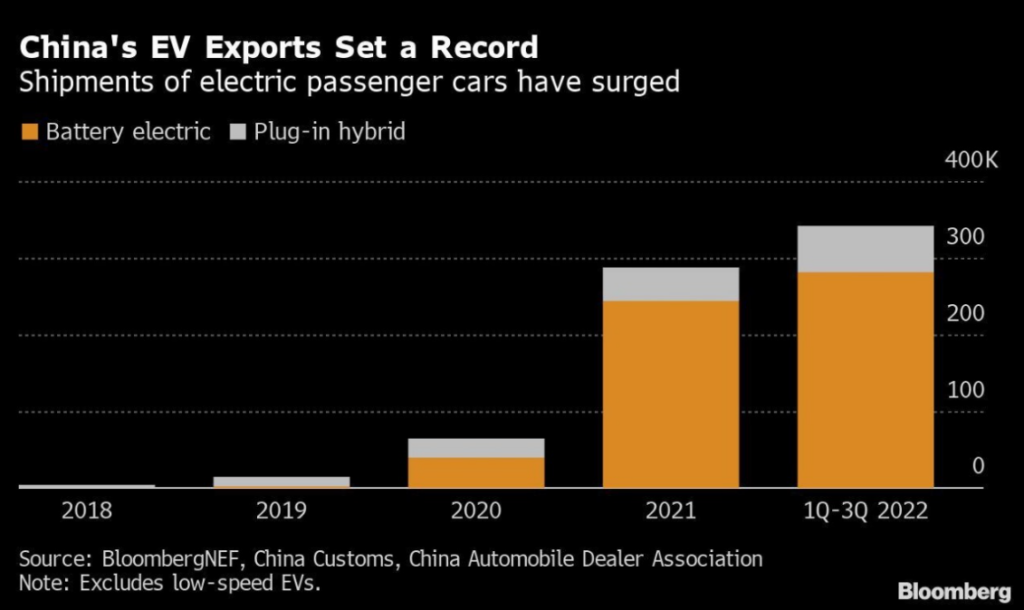According to a recent report by BloombergNEF, China has seized control over a significant portion of the EV supply chain, from processing raw materials for batteries to global battery manufacturing.
Today, China is responsible for producing over 80% of the world’s lithium-ion batteries, presenting a significant challenge for car manufacturers worldwide who must invest heavily to secure their battery supply by establishing Gigafactories.
So, Why China?
Tax incentives play a pivotal role in China’s electric mobility boom. Not only are there tax breaks and exemptions for purchasing electric vehicles, but manufacturers also enjoy various benefits from the government. Moreover, China has implemented sanctions targeting vehicles with high fuel consumption, further driving the internal shift towards electric vehicles.

Turning to Latin America, China is eyeing medium-term growth opportunities, challenging the dominance of Western companies in the LATAM market. With abundant natural resources, particularly lithium reserves in Bolivia, Chile, and Argentina, there’s a potential for increased investment. This aspect warrants further exploration, particularly regarding the negotiation terms these countries can leverage to enhance national value through specialization in new industrial technologies and to utilize local labor.
A prime example of this shift is BYD’s recent forays into the market. Initially known for battery manufacturing, BYD is now a leader in various Latin American markets, including Brazil, Mexico, Chile, Colombia, and Uruguay, offering solutions for light vehicles and electric bus fleets.
Brazil’s Role in EV Manufacturing
Brazil is poised to play a significant role in EV manufacturing, exemplified by BYD’s recent announcement to establish its first electric and plug-in hybrid car factory in the country. With a hefty investment of $605 million, operations are set to commence between late 2024 and early 2025, with an annual capacity of nearly 150,000 units. Government incentives and the potential for exporting to other Latin American countries position Brazil as a potential leader in zero-emission vehicle manufacturing in the region.

Diego Cosentino
Sustainable Mobility / e-mobility Consultant
With over 20 years of experience in the automotive sector, Diego has held middle and managerial positions in international companies and organizations alongside multicultural teams. He has been responsible for mobility area management, leading the implementation of various communication actions and business models that resulted in effective alliances with various private sector players.



